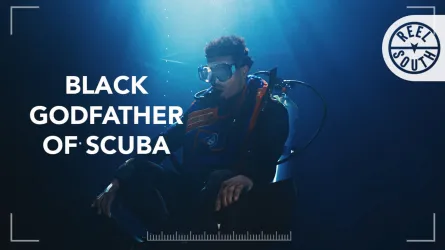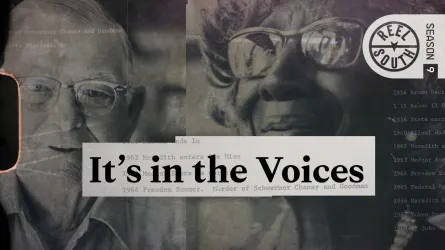After a contentious race, the 2017 runoff for mayor of New Orleans came down to two candidates: Desirée Charbonnet and LaToya Cantrell, two very different black women. Through news footage, campaign advertisements and archival audio and video, "All Skinfolk Ain't Kinfolk" is the unprecedented story of this mayoral runoff told through the eyes of black women living in this city. We connected with the film's maker, Angela Tucker, to get her insight into the creation of the film.
What inspired you to make your film?
As background, I first moved to New Orleans years ago from New York City and this was the first election I've ever been a part of where I was voting between two black women.
I thought it was incredibly exciting, but when I talked with my friends they were like, "Eh. Sure."
So I began to wonder why aren't people more enthusiastic, right? Why aren't black women, particularly young black women more excited? So I started interviewing my friends about the election and their feelings about the election. And, in general, their feelings of not being heard, right. So that's what got me started on this journey.
What was the transition from moving from New York City to New Orleans like?
Well, both cities think they're the greatest in the world, so they're similar in that way. I moved to New Orleans because I wanted a different life and a slower pace. But I still wanted to be in a place that had a rich culture and a lot of art, that type of thing.
Culturally, I was able to transition easily because both of my parents are from the South and I spent summers in either Appalachia where my mom's family ended up or Kentucky. So though, I'm born and raised New Yorker, I still have roots in other places. I didn't expect to move to the South. I always thought I'd live in New York, but something happened where I kind of just said, I think I'm done with New York.
Well, I'm sure the South welcomed you with open arms, right.
Yeah. No, definitely.
How did you get connected to your subjects?
First my friends. But I put up some parameters and I wanted half to be New Orleans and half be transplants. So once I interviewed my friends, I got suggestions in order to fill out the kinds of voices I wanted.
Were there any parts you wished you could have included in the film?
The film was actually shorter and I made it longer for Reel South. So there isn't anything else I'd want to include, because I got to have everything I wanted.
Were there any interesting behind-the-scene moments or backstories that weren't relayed in the film?
Well, I wanted it to be from the point of view of these women trying to decide who to vote for and that's why we didn't interview the candidates. You don't typically get to meet whoever you want to vote for, either.
Also, we were trying to figure out how we were going to get certain ideas across and I thought, "I wish there was something that happened in the city that a lot of black women were going to be at." Then my friend said, "The Essence Festival." So the shots of the women in the French Quarter came from that. That was a great way of getting across this idea. This birdseye view of black women.
What do you hope people take away from your film?
There are two takeaways. One, I want people to be empowered to learn more about their local elections.
Secondly, for politicians. As we're trying to engage different communities to go out and vote, try and find the issues that really affect those communities.
Is there any advice you'd give other filmmakers or others interested in documentary film?
People say all the time to just run out and start shooting, but I would actually say when you have an idea, research and develop that idea before you turn on the camera. You want to really think about what you're interested in saying. A lot of people will say, "Oh, I don't know what it's going to be when it's done," but you don't have to know what's going to happen in order to have a clear idea of what you're trying to say. That idea might change over time but work with it.
Finish this sentence, "What defines you..."
My family. Growing up in New York City, but now living in New Orleans definitely affected who I am and the stories that I tell. I also love being a black woman.
Category
Share


